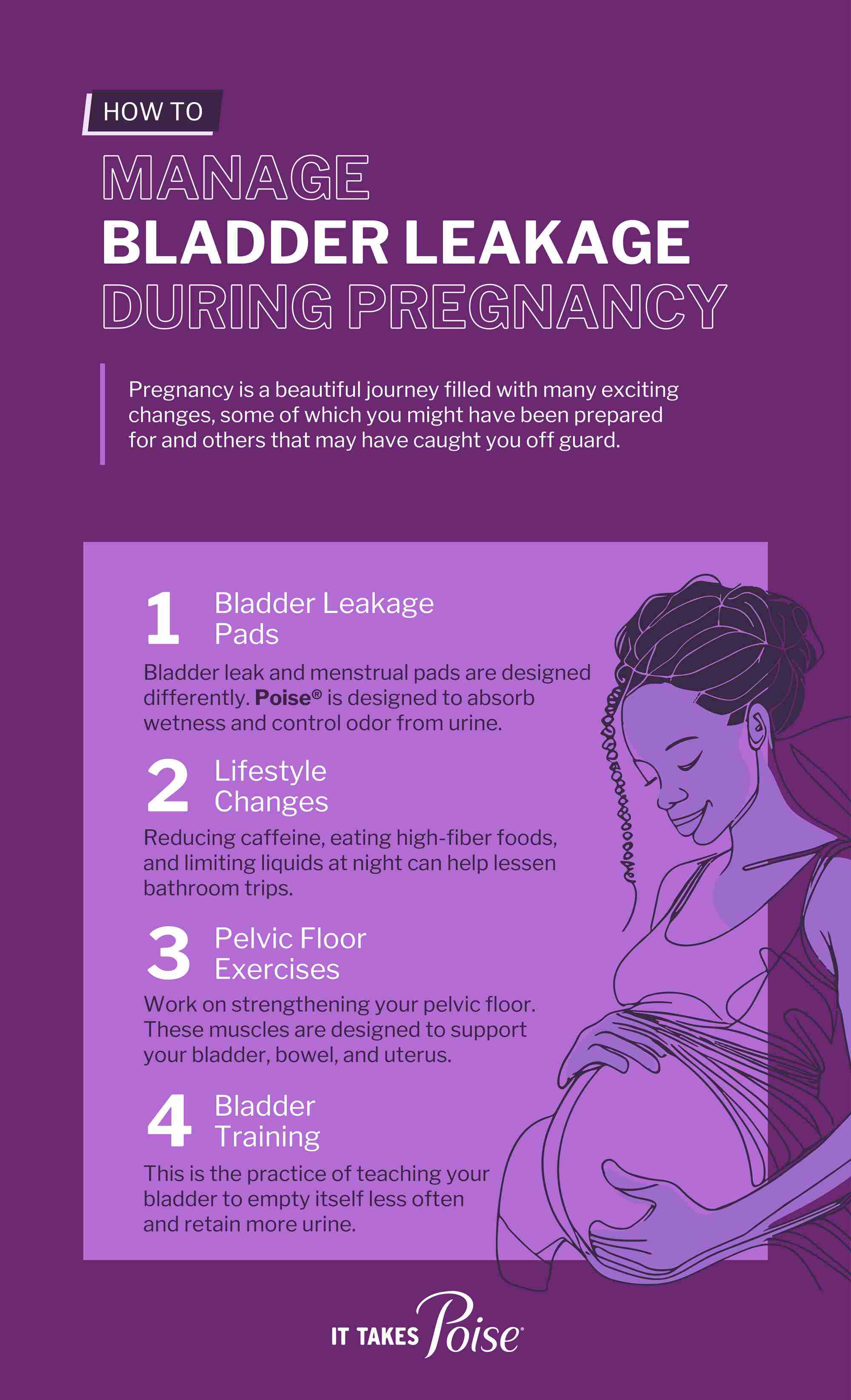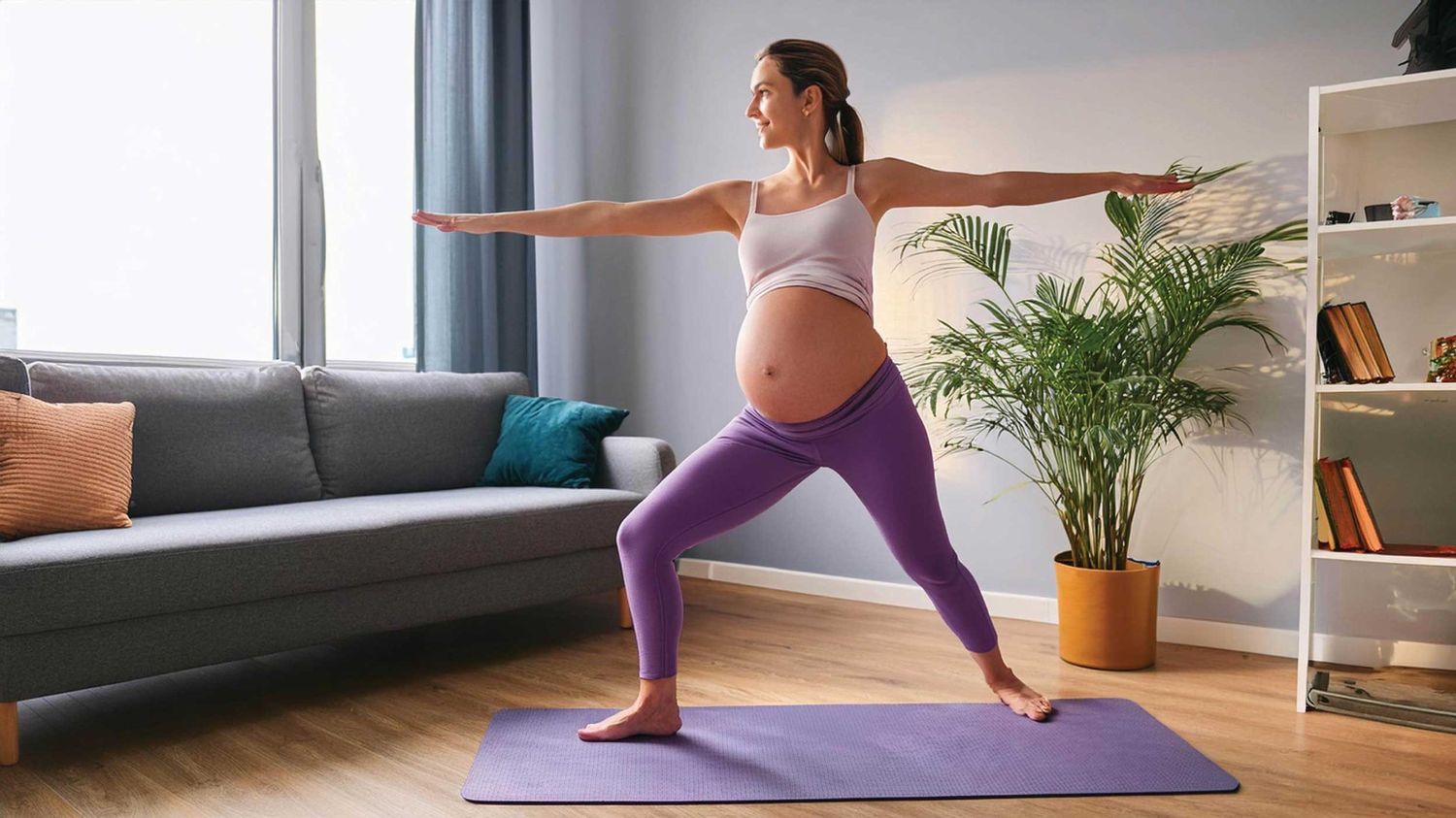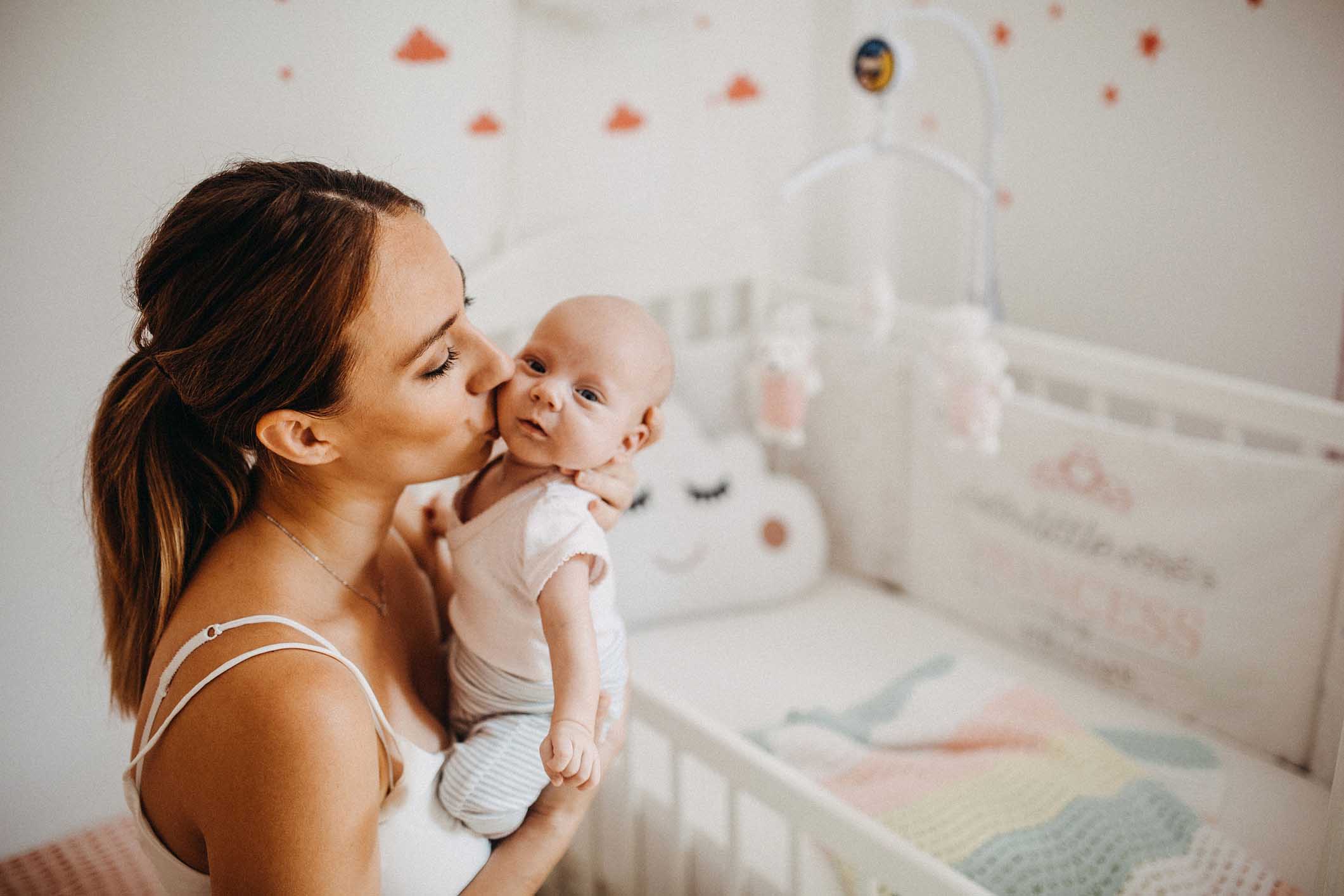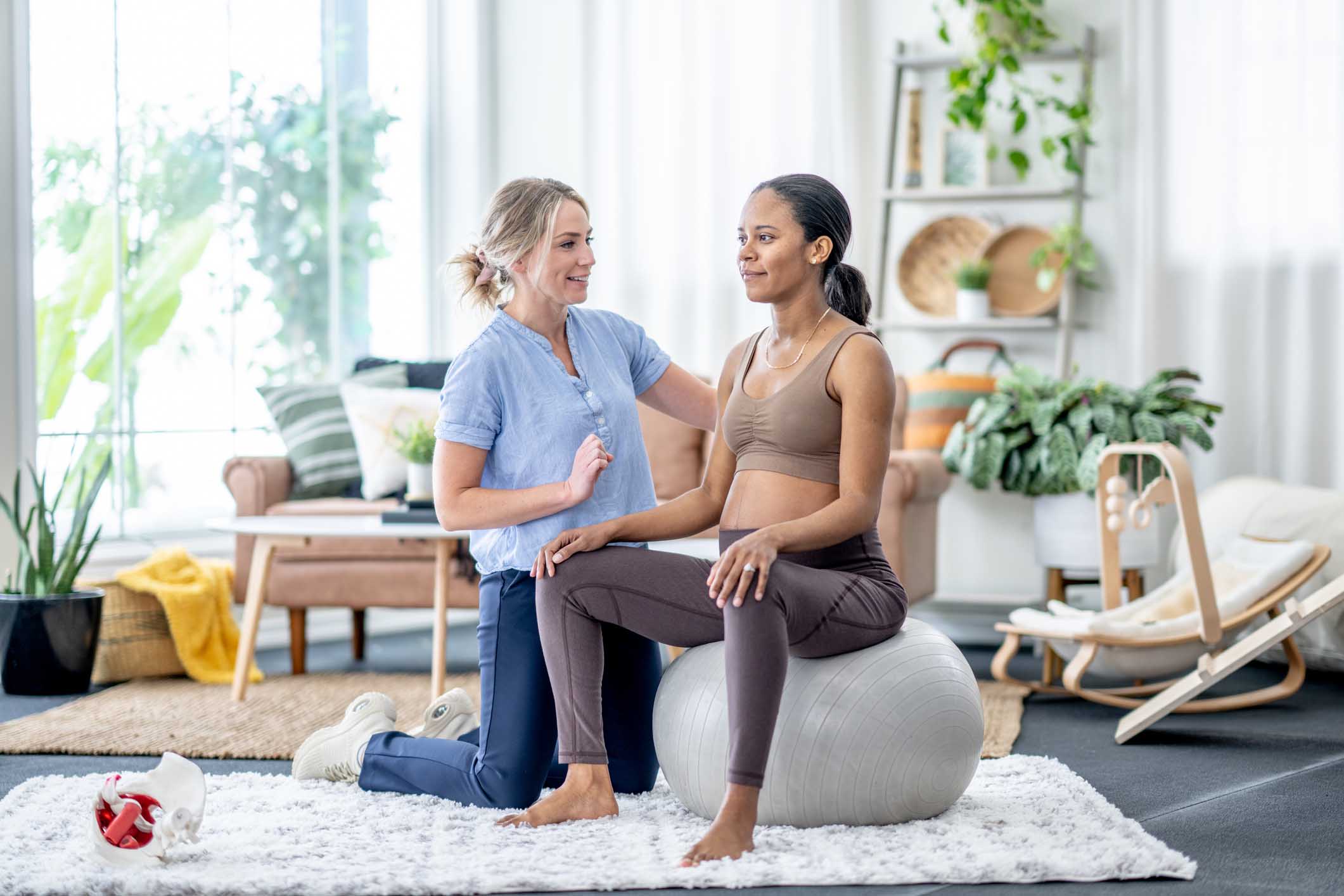How to Manage Urine Leakage During Pregnancy
Pregnancy is a beautiful journey filled with many exciting changes, some of which you might have been prepared for and others that may have caught you off guard.
Do you remember the first time you laughed at your friends joke or sneezed and suddenly felt that pressure on your bladder, the sudden urge to pee? Then, before you know it you’ve experienced bladder leakage.
Although it can be surprising - and maybe even a bit uncomfortable - leaking urine during your pregnancy is more common than you might think. With the lifestyle and product interventions mentioned, you’ll be prepared and comfortable throughout your pregnancy journey as well as what incontinence pads from Poise® are right for you.
What is pregnancy incontinence?
You’ve probably had family members or friends tell you that wouldn’t be able to sneeze, laugh, or cough while pregnant without peeing a little. Occurring for about 40% of women, pregnancy incontinence happens when you have trouble controlling your bladder during pregnancy. This means that you might need to urinate more frequently and have urinary leakage when laughing, coughing, sneezing, or doing other day-to-day activities like playing with your kids. However, this typically goes away shortly after birth.
If you’re experiencing incontinence or suspect that you are, visiting your doctor is a good first step. They might conduct a physical exam and tests to confirm if you have incontinence and provide you with a list of personalized treatments such as lifestyle modifications, pelvic floor exercises, or incontinence pads.
Why does incontinence occur?
If you’re only expecting to experience urinary incontinence in the third trimester, you might be surprised to know that it can also occur in the earlier stages of pregnancy.
Bladder leakage can be boiled down to a few changes. As you’ve experienced, your body goes through a wide variety of changes throughout pregnancy, some of which, like the ones listed below contribute to the development of your leaky bladder:
Increased pressure on your bladder as your uterus expands to house your growing baby.
Increased progesterone levels cause your pelvic ligaments to loosen up in preparation for birth. This loosening will contribute to weaker bladder muscles and difficulty holding in urine.
Urinary incontinence after childbirth can also occur (especially if it was vaginal delivery) thanks to weakened pelvic floor muscles. This weakening can lead to pelvic organ prolapse contributing to incontinence.
Vaginal childbirth can also lead to pelvic muscle and nerve damage which can cause bladder control problems.
Bladder Supportive Products
Have you been thinking about using a normal period pad to absorb your bladder leakage during pregnancy? Unfortunately, this might not be the best idea as incontinence and menstrual pads are designed differently to accommodate for the differences between blood and urine. The speed of excretion and the composition of blood and urine are different, where blood is excreted slowly and urine is excreted faster.
At Poise®, we’ve created a line of bladder leak pads and liners for day and night. Designed to offer you up to 12 hours of leak-free protection, our pads are designed to keep you feeling fresh, dry, and confident.
If you’re looking for a more discreet alternative after childbirth, try the Poise® Impressa® line (recommended three months after birth). Worn like a tampon, this line features non-absorbent bladder support to prevent leaks before they happen in a comfortable and discreet way. Additionally, they come in single packs and move with your body for a comfortable fit.
Urination Through Pregnancy
As your body changes throughout pregnancy so do your urination patterns and needs. Understanding these changes can help you formulate lifestyle interventions that help you become more comfortable during your journey to motherhood.
First trimester
So, when does frequent urination start in pregnancy? Changes to your peeing patterns can happen as early as your first trimester of pregnancy. Many women report needing to visit the bathroom more from as early as 10-13 weeks into their pregnancy as hormonal changes and your uterus pushing on your bladder will trigger a need to pee more often.
Second trimester
During your second trimester, you’ll be able to breathe a sigh of relief from less frequent visits to the bathroom. During this time your frequency of bathroom visits should ease up thanks to your uterus pushing past your bladder. However, everybody’s journey and symptoms are different during this time where you might find that you still must frequently urinate.
Third trimester
By the third trimester your baby will be weighing the size of a watermelon or pumpkin. Your little bundle is now almost ready to arrive and will be taking up all the space in your uterus, meaning the weight of it is fully resting on your bladder and bowels.
The weight of your little one will mean that frequent trips to the bathroom are back and that you’re more likely to have urine leaks. This is the time when accidentally leaking in your underwear is more common when you laugh, sneeze, and/or cough.
What Can I Do to Manage My Incontinence?

When it comes to managing your leaky bladder there isn’t a one size fits all solution and there probably won’t be just one thing that will help you either. Let’s dive into some of the lifestyle and product solutions that will help you manage your bladder leakage.
Lifestyle Changes
Drink less caffeine. It’s usually recommended that you switch to decaf or lower your caffeine intake during pregnancy, but did you know that drinking caffeinated drinks can increase your blood pressure and cause you to pee more? Lowering or avoiding caffeine can help you avoid the discomfort that comes with pregnancy incontinence.
Eat high-fiber foods and foods good for an overactive bladder. It’s been found that constant straining to poop can cause your pelvic floor muscles to weaken, resulting in urine leakage.
Limit your liquids after dinner. Depending on the stage of your pregnancy you might be feeling super uncomfortable already and getting up multiple times to pee when you’re trying to sleep can be annoying. Limiting your fluids can help lessen the amount of bathroom trips when you’re trying to sleep.
Other lifestyle changes that might help include losing weight, quitting smoking, drink plenty of water, and limit your alcohol.
Pelvic Floor Exercises and Relaxation
Your pelvic floor is a group of muscles designed to support your bladder, bowel, and uterus. Research from Davenport MH has shown that working on strengthening this group of muscles is one of the best ways you can help ease your pregnancy incontinence.
Some pregnant women may experience a weakened pelvic floor. This can be presented as episodes of stress incontinence. Pregnant women can sit on the toilet and relax the pelvic floor to empty the bladder fully and go to pee when the bladder feels full. Additionally, pregnant women can seek a physical therapist who can help with strengthening pelvic floor exercises.
Make your Pregnancy a Comfortable One
Urinary leaking during your pregnancy is a normal occurrence. As your baby grows, you might be surprised at all the changes your body is experiencing. Urinary leakage doesn’t have to be a hindrance in your journey and the tools and techniques covered will help give you more freedom around bathroom visits and ease throughout your journey.
This content should not substitute medical advice from your personal healthcare provider. Please consult your healthcare provider for diagnosis or treatment.
Still unsure of the right Poise® product for you? Take our quiz to find the best product to manage your incontinence.
Recommended Products
Absorbency Level
Absorbency Level








